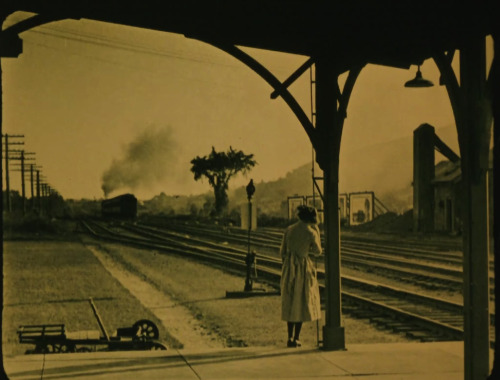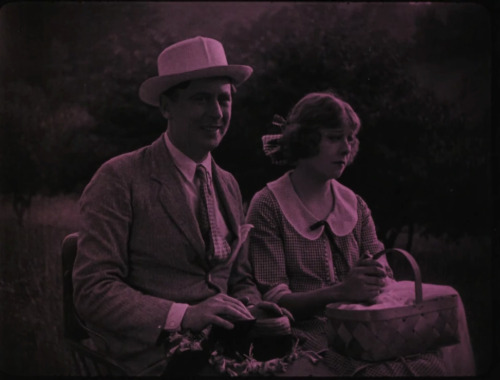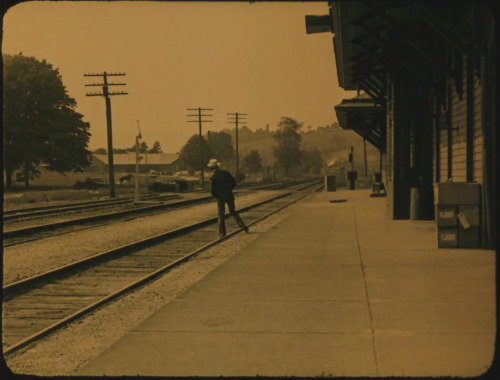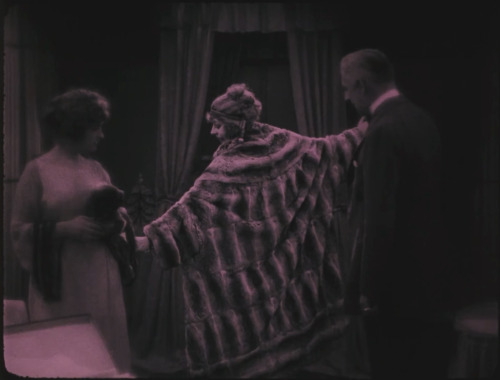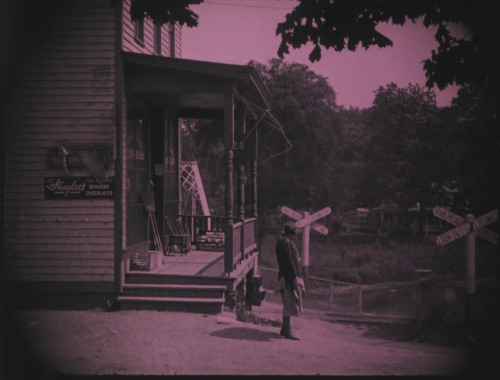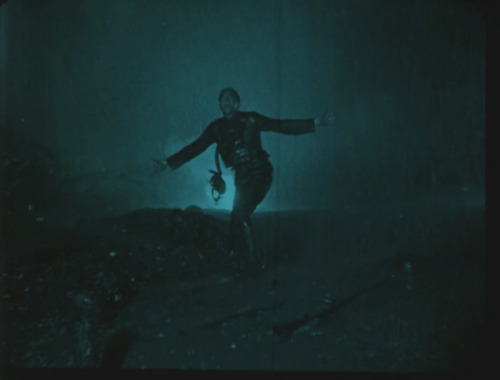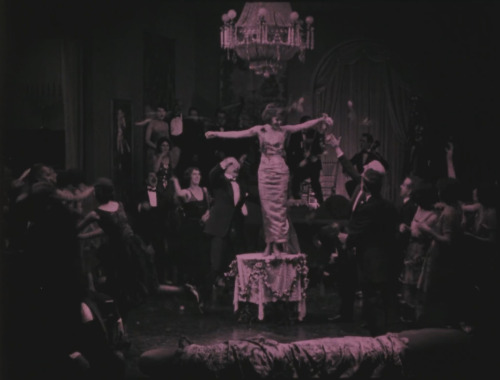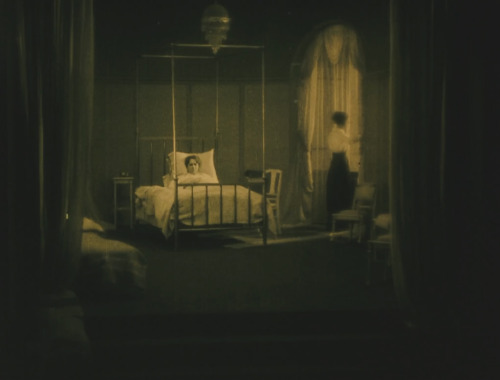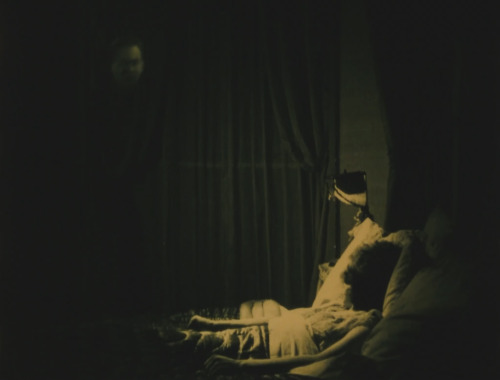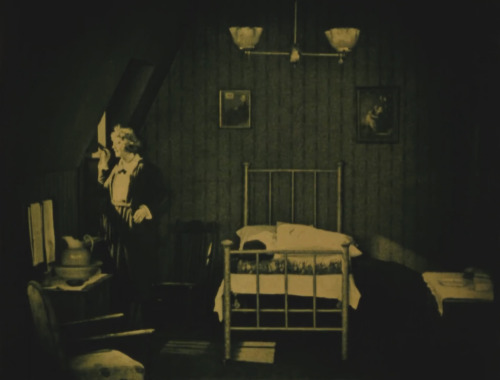#frances marion
1922 in 2022: Back Pay(1922)
Directed by Frank Borzage
Adapted for the screen by Frances Marion
Based on a story by Fannie Hurst
Photographed by Chester Lyons
Produced by Cosmopolitan Productions
Premiered on 8 January 1922
Synopsis:
Hester Bevins (Seena Owen) dreams of a bigger, more extravagant life than her small-town home of Demopolis can offer. When Hester decries her flannel and gingham lifestyle to her beau, Jerry (Matt Moore), he doesn’t take her seriously. Regardless, once Hester has the scratch, she moves to New York City. There, she toils in obscurity for a few years before she lands a tycoon boyfriend, Wheeler (J. Barney Sherry). Though Hester has settled into the lap of luxury, she hasn’t forgotten her roots. Hester returns to Demopolis for a spell while on a road trip with Wheeler and friends. There she finds the whole town has forgotten her, except for Jerry. Jerry still insists Hester belongs in gingham and with a heavy heart she rejects him again and returns to the city. Normal life resumes for Hester, while Jerry enlists to fight in World War I. After Hester discovers that Jerry has returned to the States wounded, she rushes to the hospital and is informed that he only has three weeks to live. Hester thinks up a scheme to make the most of his last days by marrying him and convincing the now-blind Jerry that she’s living in a humble one-room apartment on earnest wages. She easily gains Wheeler’s agreement to support this arrangement. The pair live out an imitation of Jerry’s modest domestic fantasy until Jerry’s death. Hester unexpectedly finds that she is unable to return to her former life. Hester is haunted by the spectre of Jerry and feels guilty for her ruse. After her maid foils an attempted suicide, Hester resolves to become the person Jerry believed she was. Hester moves into a dingy one-room apartment, reclaims her old job, and is determined to pay for Jerry’s funeral with money she earned “honestly” as a final act of atonement.
My Impressions:
There was a lot I liked about this movie, and I really enjoyed Seena Owen’s performance, but the morality of the story was so shallow that it left me frustrated.
There’s not much information online about the movie, so I tried to scan through movie magazines from the time with little luck. Then I ended up finding a contemporary review cited on Back Pay’s Wikipedia page! The reviewer, James W. Dean, was also disenchanted with the hollowness of the film. Dean was already familiar with the story from the original publication (in Cosmopolitan Magazine in 1921) and from the stage play which was running while Back Pay was produced and released. And, according to Dean, the movie adaptation gutted the substance of the story. This spurred me on to find a copy of the original story and golly was Dean right!
In the story, Hester’s childhood in Demopolis is recounted in a way that deeply informs the choices she makes as an adult. Hester was raised by a protective aunt who also happened to be running an adult establishment out of her home. These childhood experiences shape Hester’s view of men and her expectations of life. This also frames Demopolis as less of a sleepy, idyllic bit of Americana. The film contains no hint of Hester’s life before the plot commences.
The film also whittles down the character of Wheeler, who in the story has a wife and child he’s double timing. He’s also searingly referred to as a “parlor patriot.” As the war rages abroad, Wheeler is specifically described as a war profiteer. When Hester asks him to do a solid for a disabled veteran, she even mentions that it’s only right seeing how much money he’s made off the war!
There isn’t much different about Jerry between the two versions of the story, aside from some blatant anti-Semitism is the original story. Honestly, even with the bigotry removed, I found it hard to like a character whose main trait is invalidating his girlfriend’s self image.
While the original story also tackles morality and guilt, the added depth of Hester’s psychology and the added shittiness of Wheeler make for a much more dynamic story.
So, I’ve ragged a lot on what was removed from “Back Pay” when it was adapted for the screen, but there is one addition that stuck with me. It regards Hester’s live-in maid. The maid isn’t a full character in either version of the story. But, if you remember from the synopsis, after the maid saves Hester’s life, Hester decides to up and leave. In other words, Hester abandons this very loyal woman in the early hours of the morning, leaving her potentially homeless and jobless with absolutely no prior notice. But, seemingly Borzage had some awareness of how completely insensitive this act was, because the camera lingers on the (unfortunately uncredited) maid looking anxious and despondent after Hester’s departure. This minimal moment is more thought given to that character than the original story, shockingly.
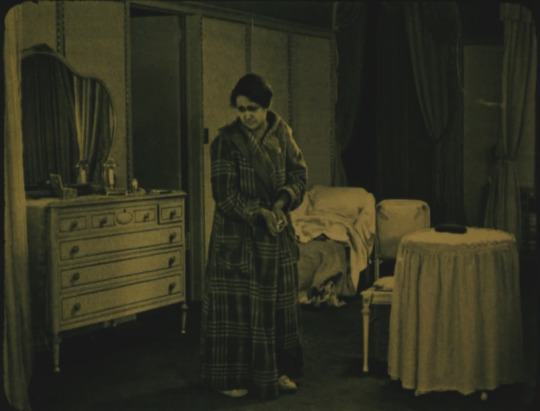
The aforementioned shot of the tragically uncredited maid.
Further Info: [below the jump!]
- Adjusted for inflation, the chinchilla coat that Hester wants Wheeler to buy for her would be $368,170.00 in 2022 dollars. Jerry’s funeral costs would be $8,848.63. (Although the movie is set some time in the 1910s, not 1922 so the numbers would be slightly different in actuality.)
- Back Pay was produced by Cosmopolitan Productions, which was owned by newspaper magnate William Randolph Hearst. The business model of Cosmopolitan was that it would have the film rights to the popular stories that ran in Hearst’s magazines and would also be able to promote the films in Hearst-owned publications. At the time Back Pay was made, Cosmopolitan’s films were distributed through Paramount.
- Back Pay was shot at Cosmopolitan’s New York studio located at Harlem River Park. The area used to contain an amusement park and casino. However, a year after Back Pay was released, while production ofLittle Old New York(1923) with Marion Davies was under way, the studio burned down. This precipitated the studio moving production to California.
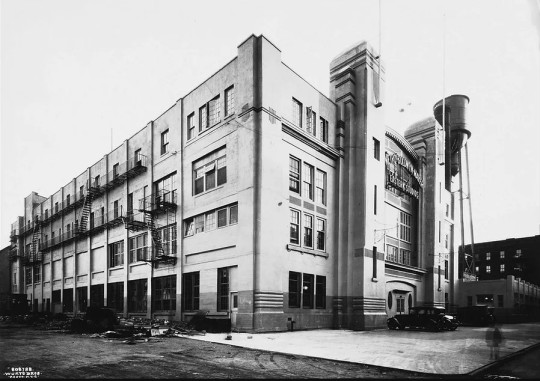
Photo of Cosmopolitan’s studio c. 1923 from the HABG Task Force website.
The city block where the studio once stood (between 1st & 2nd and E 126th & E 127th in Harlem) was, until recently, a city bus depot abutting a bridge ramp. We often talk about how much has changed in Hollywood in the last century, but the old movie-making enclaves in New York and New Jersey have also changed massively! I bet the view across the river from the studio was lovely back then!

The block as seen on Google Maps in 2019. (Shoutout to this dude in a Dragon Ball Z t-shirt btw)
Seeing as this post is already a beast, I’ll quickly say that the history of this location, going all the way back to when Harlem was still Nieuw Harlem is fascinating and the redevelopment plans for the area sound great! The website Urban Archive has a full survey. It’s worth a read!
You can also check out the HABG Task Force website for details on the redevelopment, which is currently slated to be completed in 2023.
Post link

The Champ (1979). Billy Flynn is an ex-champion boxer who was KO’d by booze and gambling. When the wealthy, estranged mother of his young son begins trying to lure the boy away from him, Flynn must return to the ring to provide for his child.
I’m a bit of a sucker for a boxing movie. There’s something about the way they tend to allow space for male characters (and actors) to be vulnerable, as if the violence of the sport opens up a sort of personal tenderness. This movie has that in spades with Jon Voight playing a father desperate to stay connected to his son, and he really plays well into Billy’s flaws and needs. The plot does veer into melodrama, but still. It’s pretty good. 7.5/10.

